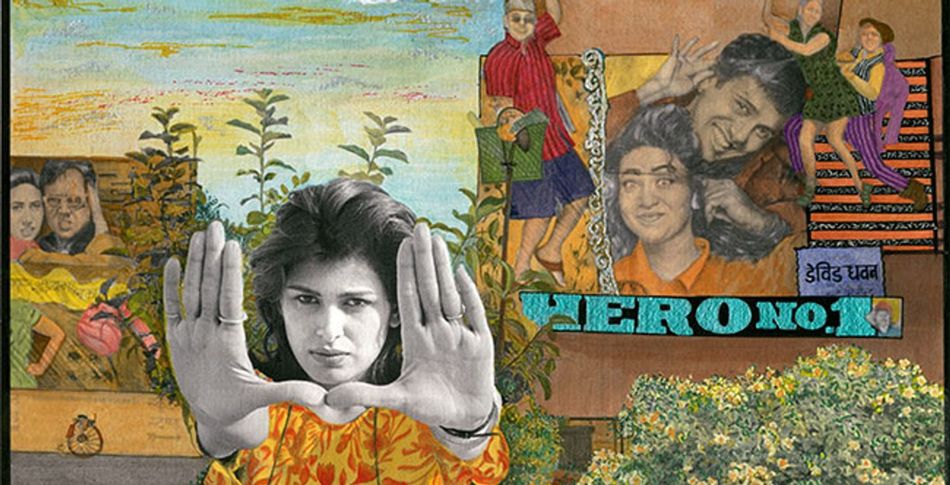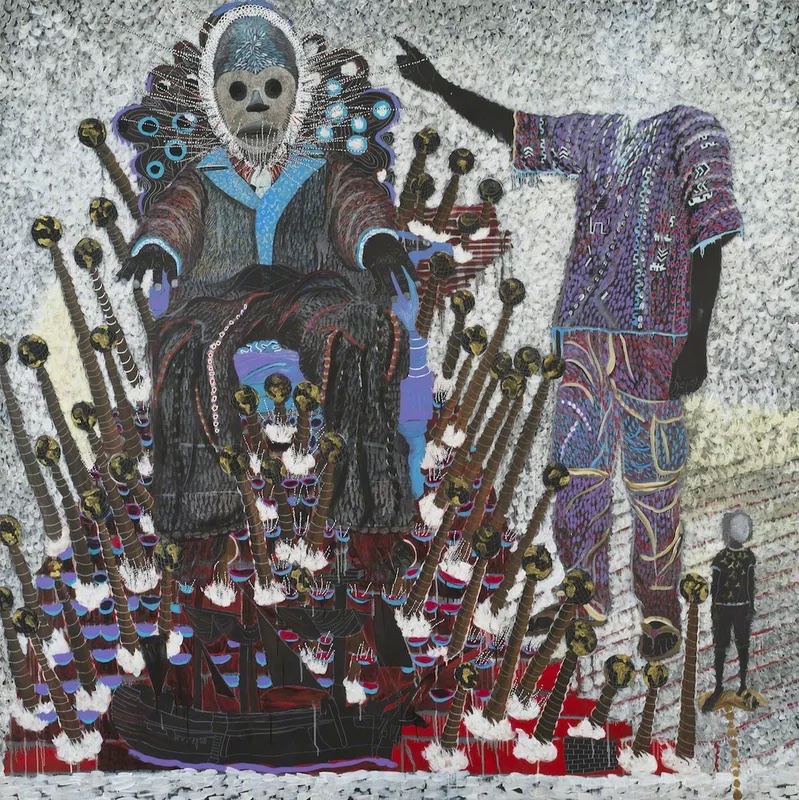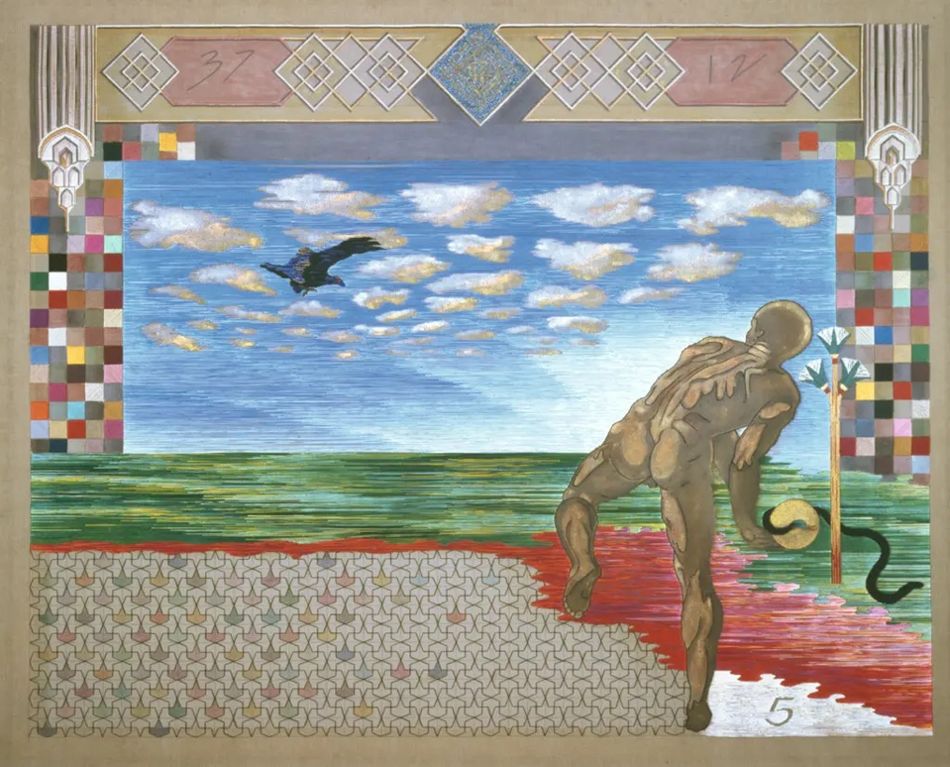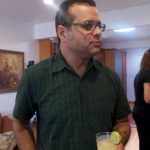
Figure Studies, 1970, by Dumile Feni (South Africa).

Orinoco Tribune – News and opinion pieces about Venezuela and beyond
From Venezuela and made by Venezuelan Chavistas

Figure Studies, 1970, by Dumile Feni (South Africa).
By Vijay Prashad – Sep 28, 2023
At its fifteenth summit in August 2023, the BRICS (Brazil-Russia-India-China-South Africa) group adopted the Johannesburg II Declaration, which, amongst other issues, raised the question of reforming the United Nations, particularly its security council. To make the UN Security Council (UNSC) “more democratic, representative, effective, and efficient, and to increase the representation of developing countries.” BRICS urged the expansion of the Council’s membership to include countries from Africa, Asia, and Latin America. The declaration specifically noted that three countries, Brazil, India, and South Africa should be included if the UNSC’s permanent members are expanded. For at least the past twenty years, these three countries (all founding BRICS members) have sought entry into the UNSC as permanent members with veto power. Over the decades, their aspirations have been thwarted, spurring them on first to create the IBSA (India-Brazil-South Africa) group in 2003 and then the BRICS group in 2009.
The composition of the UN Security Council and the question of which states have veto power as permanent members have been central issues for the UN since its founding. In 1944, at Dumbarton Oaks in Washington DC, the main Allied powers (Britain, China, the Union of Soviet Socialist Republics, and the United States) gathered to discuss how to shape the UN and its main institutions. These states, known as the “Big Four,” decided that they would have permanent seats in the UNSC and, after much deliberation, agreed that they would have the power to exercise a veto over UNSC decisions. Though the Union of Soviet Socialist Republics was not keen to bring France into their ranks because the French government had colluded with the Nazis from 1940 to 1944, the United States insisted on France joining the group, which would in turn become known as the “Big Five.” The UN Charter, signed in San Francisco in 1945, adopted Article 23 that the Council would consist of these five countries as permanent members (also known as the “P5”), along with six other non-permanent members who would be elected by the General Assembly for two-year terms.

In July 2005, a group of countries known as the G4 (Brazil, Germany, Japan, and India) brought a resolution forward at the UN General Assembly that raised the issue of reforming the UNSC. Brazil’s ambassador to the UN, Ronaldo Mota Sardenberg, told the assembly that “accumulated experience acquired since the founding of the United Nations demonstrated that the realities of power of 1945 had long been superseded. The security structure then established was now glaringly outdated.” The G4 proposed that the UNSC be enlarged from fifteen to twenty-five members, with the addition of six permanent and four non-permanent members. Most of the members who spoke at the debate pointed to the fact that no countries from Africa or Latin America had permanent seats in the UNSC, which remains true today. To remedy this would itself be a substantial act of equity for the world. To make this change, the UN Charter required approval from two-thirds of the General Assembly members and ratification by their legislatures – a process that has only happened once before, in 1965, when the council was enlarged from eleven to fifteen members. The 2005 resolution was not brought to a vote and has since languished, despite the passing of a resolution in 2009 on the “question of equitable representation and increase in the membership of the Security Council and related matters.” Nonetheless, these efforts opened a long-term dialogue that continues to this day.
The G4 countries have not been able gather sufficient support for their proposal because the current permanent members of the UNSC (Britain, China, Russia, the US, and France) cannot agree on who among their allies should be granted these seats. Even in 2005, a divide opened among the P5 countries, with the United States and its G7 allies (Britain and France) operating as one bloc against both China and Russia. The US has been willing to expand the permanent seats on the council, but only if it means bringing in more of its close allies (Germany and Japan), which would allow the UNSC to effectively remain dominated by five of the seven members of the G7. This, of course, would not be acceptable to either China or Russia.
Today, as the question of comprehensive UN reform is gathering momentum, the US government is once again trying to co-opt the issue, calling for the expansion of the UNSC in order to counter Chinese and Russian influence. US President Joe Biden’s high officials have openly said that they favor bringing in their allies to tilt the balance of debate and discussion in the UNSC. This attitude towards UN reform does not address the fundamental questions raised by the Global South about international democracy and equitable geographical representation, particularly the call to add a permanent member from Africa and from Latin America.

In 2005, then UN Secretary-General Kofi Annan wrote a report entitled “In Larger Freedom” calling for the expansion of the UNSC from 15 to 24 members. This expansion, he said, must be done on a regional basis, rather than allocating permanent seats along historical axes of power (as with the Big Five). One of the models that Annan proposed would provide two permanent seats for Africa, two for Asia and the Pacific, one for Europe, and one for the Americas. This allocation would more closely represent the regional distribution of the global population, with the UNSC’s center of gravity moving towards the more populous continents of Africa (population 1.4 billion) and Asia (population 4.7 billion) and away from Europe (742 million) and the Americas (1 billion).
Meanwhile, Britain and France, two permanent members of the UNSC, currently have minuscule populations of 67 million and 64 million respectively. It is puzzling that these two European countries, neither of them the most powerful country in Europe (which in economic terms is Germany), have retained veto power despite their dramatically declining role in the world. The recent setbacks for France’s colonial ambitions in Africa, as well as France’s inability to lead a European agenda for peace in Ukraine, show how increasingly irrelevant this European country has become in world affairs.
When the Torturer Is the Savior: Can BRICS Help Us Escape the West’s Hegemony and Contradictions?
Equally, Britain’s declining position in the world after Brexit and its failure to provide a vision for a Global Britain suggest that, despite Prime Minister Rishi Sunak’s anger at the use of the term, it is correct to consider it a “midsize country” with an inflated sense of itself.
Britain and France’s permanent seats in the UNSC illustrate the anachronism of the council’s architecture since neither country inspires confidence when it comes to providing leadership for security and development in the world.

“The present is an innocent lie,” Samih al-Qasim (1939–2014) wrote in the poem “After the Apocalypse.” “To see the future, you must consult the past,” he noted, thinking of his native Palestine and its occupation by Israel. The colonial past sits heavily on the present. The colonizers’ power remains intact, with the Banque de France and the Bank of England remaining repositories of the wealth stolen from the colonies. What gives these old colonial powers, Britain and France, permission to remain overlords of the present, even when the basis for this position has long eroded? (It is worth noting that, in addition to being nuclear powers, these countries are also among the world’s major top arms exporters.) The power that these and other colonial powers have seized in the past remains a barrier to the needs of the present.
The United States, which has lost its place as the most powerful country in the world, seeks to hold onto inherited advantages (such as having close allies in the UNSC) and to spend overwhelming amounts of money on war (as evidenced by the fact that it accounts for half of the global arms expenditure, for instance). Rather than allow for a more democratic and robust United Nations, the US continues to try to neuter this global institution either by dominating its forums or by violating its charter whenever it pleases. At the recently concluded 78th UN General Assembly session, US President Joe Biden spoke of the importance of “sovereignty, territorial integrity, [and] human rights.” all three routinely violated by the United States through war, sanctions, and its prison at Guantanamo Bay. Absent moral authority, the United States uses its muscle to block the advance of democracy in institutions such as the United Nations.
Thus far, many proposals hailing from all sides of the political spectrum have called for the expansion of the UNSC, which requires votes in the General Assembly and the legislatures of the member states. It is far easier to create equity in the council if two of the members withdraw themselves from the horseshoe table and turn their seats over to countries in Africa and Latin America, which remain unrepresented among the permanent members.
(The Tricontinental)
BLA

Vijay Prashad is an Indian historian, editor and journalist. He is a writing fellow and chief correspondent at Globetrotter, a project of the Independent Media Institute. He is the chief editor of LeftWord Booksand the director of Tricontinental: Institute for Social Research. He has written more than twenty books, including The Darker Nations: A People’s History of the Third World (The New Press, 2007), The Poorer Nations: A Possible History of the Global South (Verso, 2013), The Death of the Nation and the Future of the Arab Revolution(University of California Press, 2016) and Red Star Over the Third World (LeftWord, 2017). He writes regularly for Frontline, the Hindu, Newsclick, AlterNet and BirGün.